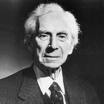Bertrand Russell's Conquest of Happiness - a personal development classic


Bertrand Russell’s Conquest of Happiness
Bertrand Russell’s books were described by Time magazine as a modern substitute for the Bible. If this is so, the The Conquest of Happiness must be at the very centre of his works.
Make no mistake, this is no abstract philosophical treatise – it is a recipe for good living, written for the likes of you and me. Russell’s work is based on two assumptions. First, happiness needs to be conquered. You can’t expect to waltz through life reaping happiness without putting in some thought and effort. But – and this is why The Conquest of Happiness is essentially an optimistic book– if you do make this effort, you can, given average fortune, attain happiness.
The conquest of happiness comes in three stages: first you need to learn about the principles that lead to happiness, next internalise them and, finally, put them into practice. Unless you had unusually wise parents, you must forget what you learnt on your parents’ knee; you must also put aside what teachers, friends and, especially, priests have told us. You must replace these ideas with ones that really will make you happy. One way to do this is to read The Conquest of Happiness, for what Russell has done here is describe fourteen characteristics of happy and unhappy people. This is the essential first stage, but it’s important to realise that Russell does not think that it is sufficient. Next, you have to really internalise these principles – it’s not enough to repeat them parrot fashion, you have to really feel them as you do your feeling of wanting to protect your own children. A superficial reading of the book might not pick up the point, yet Russell emphasises it several times.
“Let your conscious beliefs be so vivid and emphatic that they make an impression upon your unconscious and be strong enough to cope with the impressions made by your nurse or your mother when you were an infant.”.
The third stage – the transformation of your life - will happen automatically if the first two steps are carried out. For example, take a theme close to Russell’s heart – that you shouldn’t feel shameful about sex. The first step involves realising at a conscious level that, whatever the priest said, consensual sex is part of a happy life, not a sin. The second step is to fully internalise this belief, to feel it, not just to recite it; if you’ve really done this, then the pay-off will be that a sense of shame will no longer stop you leading a sexually fulfilling life.
If you can follow these three steps for each of the fourteen characteristics described by Russell you will give yourself the best chance of achieving not just happiness but also freedom from what the Enlightenment philosopher Spinoza called ‘human bondage’. You will no longer be flotsam and jetsam, acted on by the forces of society and the commands of your parents, but a self-determining human being. You will be happy and free.
This framework is given flesh by Russell’s analysis of the fourteen characteristics of happy and unhappy people. Each chapter consists of a justification of why the chosen characteristic is good or bad, nice distinctions between its various senses and a discussion of other writers’ views and Russell’s practical advice for attaining happiness. Sometimes Russell digresses to make some rather tangential remarks about society and education and other personal concerns. Since our concern is with how to be happy, rather than Russell’s other preoccupations – such as the difficulty of obtaining good housemaids in the 1920s – this will be our focus.
The Conquest of Happiness in a page
To CONQUER UNHAPPINESS
1. Don’t be taken in by melancholy
Melancholy is only a passing mood; don’t mistake it for wisdom.
2. Don’t get caught in the competitive treadmill
Feeling happy is the only true success.
3. Develop the right attitude to boredom and excitement
Excitement is best sought in small doses and in the right places.
A certain amount of boredom is to be expected.
4. Make your worries concrete, don’t suppress them
Get a sense of perspective; Ask yourself ‘what is the worst thing that could possibly happen?’
5. Don’t envy, admire!
Enjoy what you have for its own sake, don’t compare yourself with others
6. Fight back against guilt & shame
Look out for the superstitious voice of your early influences; reason with it and defeat it.
7. Don’t suffer from an exaggerated sense of injustice
Exaggerate neither your own good nor others’ interest in you!
8. Don’t care too much what others think
Respect public opinion only to avoid starvation and stay out of jail.
To CONQUER HAPPINESS
1. Cultivate zest
Get into the habit of taking a lively and friendly interest in everything
2. Be affectionate
Reach out to other people and give affection; accept, but never demand it, in return.
3. Be a good parent
Give your child time & user your parental your child’s good
4. Do interesting, varied and constructive work
Find work that is varied, builds on a skill and creates something.
5. Cultivate plenty of relaxing minor interests
Enjoy as many diversifying hobbies and pursuits as you can; make sure these provide variety from your day job.
6. Find the right balance between effort and resignation
Do your best and when you have done all you can leave the issue to fate
Labels: bertrand russell, happiness, practical philosophy, self-help classics
